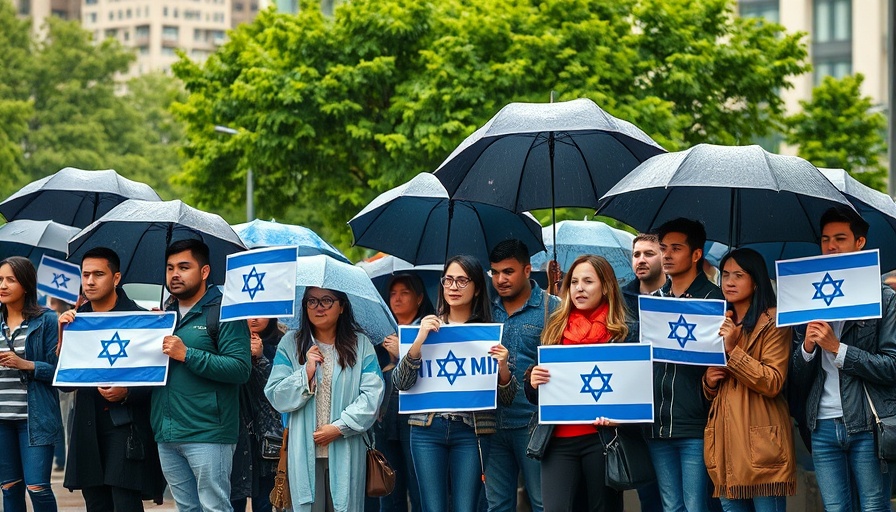
Understanding the Rising Threats to Jewish Communities
The recent attack in Boulder, Colorado, represents yet another alarming incident targeting Jewish individuals amid a troubling backdrop of antisemitism across the United States. Following the tragic shooting outside the Capital Jewish Museum in Washington, D.C., and an act of arson at the home of Pennsylvania’s Jewish governor, this latest violence underscores a disturbing trend fueled by geopolitical tensions.
The Context of Current Events
This attack occurred as the Jewish community was rallying for the safe return of hostages held by Hamas, a sensitive and polarizing topic in light of ongoing conflicts in Gaza. Colorado's Governor, Jared Polis, condemned the attack vehemently, reflecting a statewide consensus on the necessity of safety and dialogue over violence. He expressed heartbreak at the juxtaposition of violence occurring during a peaceful march meant to raise awareness for those detained by terrorists.
Echoes of Violence: The Historical Narrative
The events unfolding today mirror past crises where hate crimes surged in response to broader international conflicts. For instance, instances of antisemitism historically spike during wartime, reflecting societal hostilities that transcend borders. This constant thread of violence against the Jewish community illustrates a significant cultural and historical narrative that resonates with many around the globe.
Emotional Reactions and Community Response
The attacks have provoked feelings of anger and confusion, especially among Jewish families who fear for their safety while simply gathering to express solidarity or mourn. Members of the Boulder community, and others around the nation, are left to grapple with these emotions while determining how best to respond. The desire for peace and understanding stands at stark odds with the violence that is becoming all too common.
Opportunity for Community Dialogue and Reconciliation
In the wake of such tragedies, comments from influential figures, including Colorado’s Attorney General Phil Weiser, remind us that hate cannot lead to constructive outcomes. Weiser’s statement highlights the importance of channeling differing perspectives into avenues of discussion rather than resorting to violence. This season of unrest presents a critical opportunity for community dialogue at various levels, from local neighborhoods to international forums.
Preparing for a More Peaceful Future
To foster a future void of such acts, fosters avenues for educating individuals about the implications of hate and the importance of tolerance. Communities must engage in allyship, providing support systems for various groups and standing together against acting on hate-driven impulses. This proactive stance could strengthen community ties and serve as a bulwark against the spread of such ideologies.
The Role of Parents and Educators
For parents and educators, addressing these events with children and young adults is crucial. By fostering conversations about empathy, understanding, and acceptance, families can cultivate a new generation that is more equipped to tackle prejudice and promote peace. Teaching young individuals about the consequences of intolerance is not just vital for immediate community well-being, but it also lays the groundwork for a more just society in the future.
Join in the Dialogue for Change
In response to these tragic events, individuals are encouraged to engage in conversations promoting understanding and compassion. By partaking in community forums, supporting local initiatives, or simply reaching out to their neighbors, they can contribute to a ripple effect of positive change. The call for a society built on acceptance and unity starts within each of us.
Together, let’s uphold the values of tolerance and kindness to ensure that no community suffers from violence driven by hatred.
 Add Row
Add Row  Add
Add 




 Add Row
Add Row  Add
Add 

Write A Comment